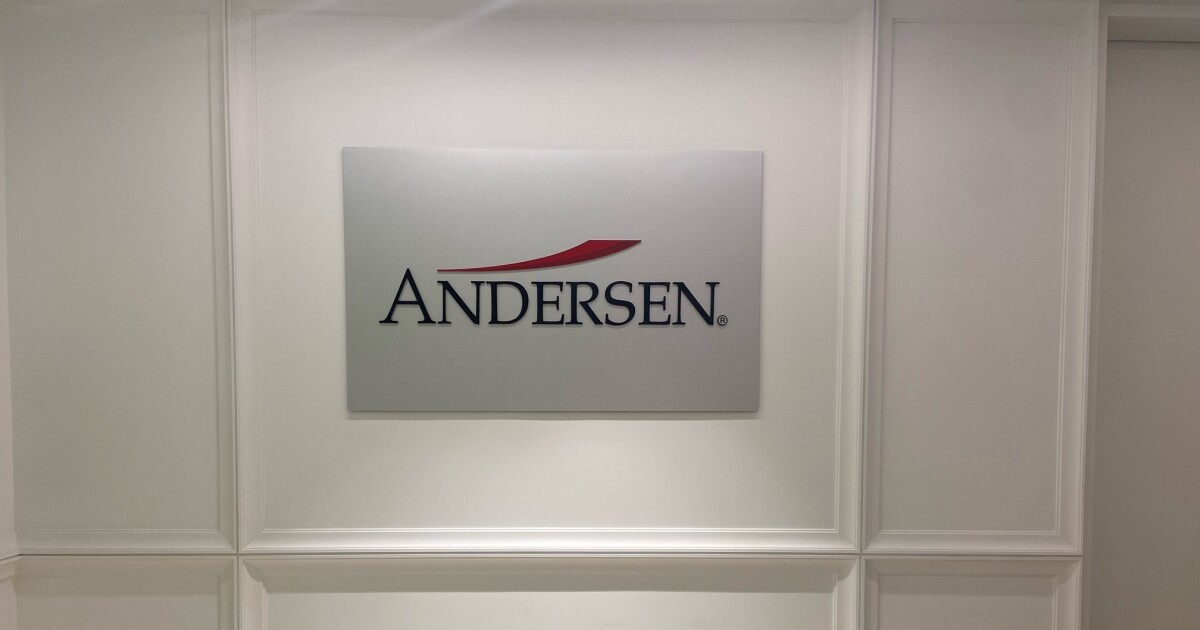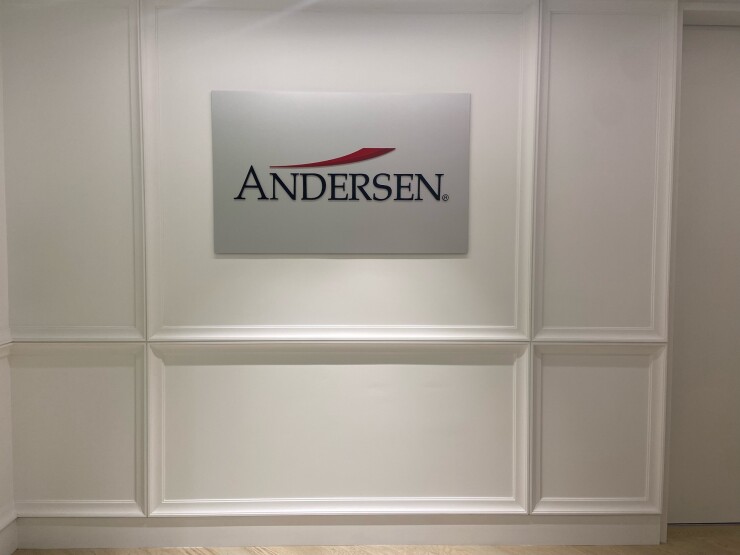Andersen, the global professional services firm founded by a group of former Arthur Andersen partners, has created the Andersen Institute for Finance and Economics, with influential economists joining its advisory board.
The institute plans to focus on trends affecting the world economy, financial markets and business decisions. It will be under the leadership of Fabio Natalucci, a former official at the International Monetary Fund, the Federal Reserve Board and the Treasury Department. He will lead the Andersen Institute’s goal of exploring the interconnections between global macro themes such as technological innovation and AI, climate change and decarbonization, geopolitical fragmentation, rising levels of public debt, and demographics.
“The Andersen Institute’s mission is to shape discussions on the most pressing global economic issues facing businesses and governments today,” Natalucci said in a statement Wednesday. “By delivering insights on key global trends, the Andersen Institute aims to foster intellectual leadership, influence public discourse, and provide strategic direction to support clients in navigating a complex global economy.”
Andersen global chairman and CEO Mark Vorsatz will chair the institute’s advisory board, which will include Nobel Laureate Myron Scholes; former Treasury Secretary Larry Summers; real estate economist Ken Rosen of the Berkeley Haas Fisher Center for Real Estate and Urban Economics; Rebecca Diamond of Stanford’s Graduate School of Business; Raghu Rajan of the University of Chicago Booth School of Business and former Governor of the Reserve Bank of India; Lubos Pastor of the University of Chicago Booth School of Business and independent director of the Vanguard Group; and George Shaheen, a retired global managing partner of Andersen Consulting (now Accenture) and technology executive.
“There is a greater need for independent financial and economic information particularly at the C-Suite level,” Vorsatz said. “The Andersen Institute’s independent economists and experts can lead in changing the dynamics of how professional service firms approach business and create access to the C-suite.”
Vorsatz and a group of 22 other former Andersen partners founded WTAS (short for Wealth and Tax Advisory Services USA Inc.) in 2002. As CEO, Vorsatz later renamed the firm Andersen Tax in 2014 after acquiring the trademarks and copyrights from Arthur Andersen LLP and Andersen Worldwide (see WTAS revives Arthur Andersen name as Andersen Tax). He then built it into a global network known as Andersen.
The institute will conduct research on topics such as how global financial markets price risks and opportunities amid heightened technological and policy uncertainty; and how businesses, governments and financial institutions navigate these trends. The Andersen Institute plans to host client events in major U.S. cities in the first half of 2025 and build visibility through partnerships, collaborations, media appearances and its digital presence.


 Economics1 week ago
Economics1 week ago
 Economics6 days ago
Economics6 days ago
 Personal Finance6 days ago
Personal Finance6 days ago
 Accounting6 days ago
Accounting6 days ago
 Personal Finance1 week ago
Personal Finance1 week ago
 Economics7 days ago
Economics7 days ago
 Finance6 days ago
Finance6 days ago
 Personal Finance6 days ago
Personal Finance6 days ago











